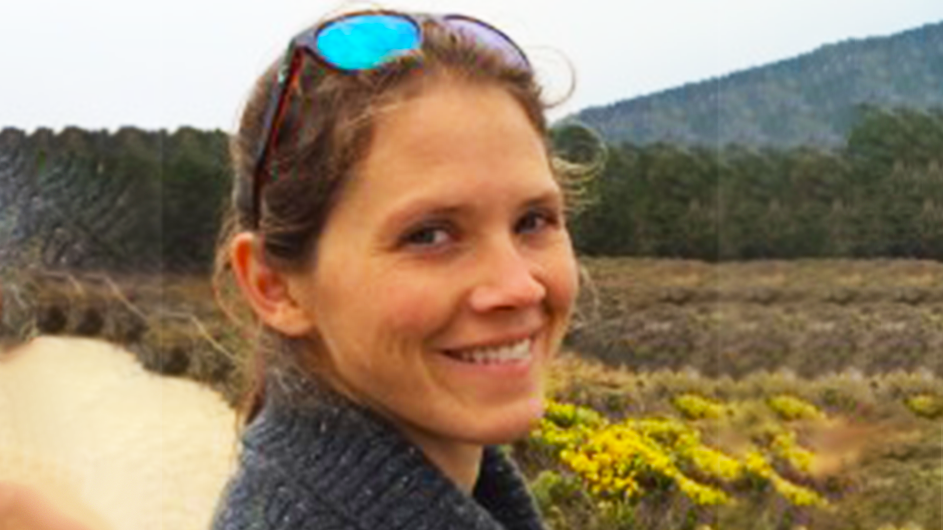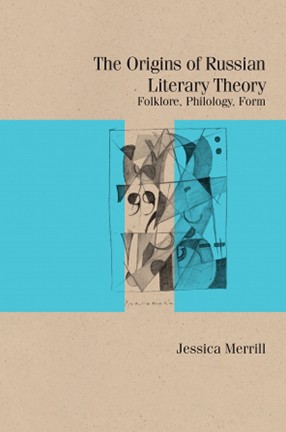A New Book Describes the Origins of Literary Theory
Jessica Merrill traces the emergence of Russian Formalism and its impact on literary form.

Russian Formalism is widely considered to be the foundation of modern literary theory. The Origins of Russian Literary Theory by Jessica Merrill, a professor in the Department of Slavic Languages, reevaluates the movement in light of the current commitment to rethink the concept of literary form in cultural-historical terms. Merrill provides a novel reconstruction of the intellectual context that enabled the emergence of Formalism in the early 20th century.
Formalists adopted a mode of thought Merrill calls the philological paradigm, a framework for thinking about language, literature, and folklore that joined them together as verbal tradition. For those who thought in these terms, verbal tradition was understood to be inseparable from cultural history. Merrill situates early literary theories within this paradigm to reveal abandoned paths in the history of the discipline—ideas that were discounted by the structuralist and post-structuralist accounts that would emerge after World War II.
Merrill discusses the book with Columbia News, along with what she’s read lately and recommends, what she’s reading next, and who she would like to invite to her first dinner party of 2023.
Why did you write this book?
My training in literary studies coincided with a state of the field that is sometimes described as post-theory. There is an abundance of sophisticated theoretical work, but no single strong theoretical paradigm for research is dominant. As a graduate student, I was compelled to try to understand this situation better.
At the same time, my course work (in Slavic Languages and Literatures at the University of California, Berkeley) introduced me to Russian Formalism. I began my research on this school as an aspect of Russian and East-Central European modernism, but was also motivated to understand how this history can clarify debates that inform the field today.
So, in short, I wrote the book in order to gain, and provide for others, a historicized understanding of the state of the field of literary studies. I argue in the book that an intellectual historical contextualization of theory not only clarifies where literary theory comes from (its origins), but allows for a reinterpretation of the theories themselves, so that they can be an asset for new theoretical work moving forward.

Is Russian Formalism the foundation of all modern literary theory, on a global scale?
The idea that Russian Formalism is the starting point for modern literary theory is, I think, widely accepted. The global scale of this claim allows for an important clarification. Russian Formalism gains this status on the basis of the assumption that it was the historical starting point for ideas that culminated in French structuralism (then post-structuralism and deconstruction).
So, in other words, Russian Formalism has been considered the starting point when modern literary theory is equated with these mid-20th-century movements. My aim in the book is to show how much is left out of this narrative. It is true that Russian Formalism was important for French structuralism, post-structuralism, etc., but I show that there was no neat line of descent or evolution. Rather, much Russian Formalist, and even Czech structuralist, work was moving in directions that were not taken up by the canonical literary theory that emerged after World War II.
What have you read lately that you would recommend, and why?
Sarah Broom’s The Yellow House: A Memoir. The way that she interweaves memoir, political history (in New Orleans), and oral and family history is both innovative and successful. I enjoyed Jonathan Slaght’s Owls of the Eastern Ice: A Quest to Find and Save the World's Largest Owl. The book describes fieldwork undertaken to learn more about an endangered species of owl in Primorye, in the Russian Far East. The conditions make for an adventurous story, which is narrated in pleasingly matter-of-fact prose from the perspective of a biologist.
In terms of fiction, I’d recommend Kerstin Ekman’s The Women and the Town (Kvinnorna och staden) tetralogy. The four books tell the history of a town in Sweden from the 19th to the 20th centuries, largely related through the experiences of working class women and children. Ekman’s eye for detail makes for an engrossing reading experience: I read all the books back-to-back during the pandemic.
What's on your night table now?
Emil Ferris’s My Favorite Thing Is Monsters, Jim Ottaviani and Leland Myrick’s Feynman, and Jean-Paul Sartre’s Nausea.
What are you teaching this semester?
This spring I am co-teaching Slavic Cultures with Christopher Harwood, a senior lecturer in Czech. This is an introductory survey of the cultural histories of Bosnia, Croatia, Czechia, Poland, Russia, Serbia, and Ukraine.
You're hosting a dinner party. Which three academics and/or writers would you invite, and why?
I would put together a fantastic historical dinner for three of the protagonists in my book. I’d be sure to have Petr Bogatyrev (1873-1971), who was described by his contemporaries as a gifted theatrical storyteller. I’d ask him for stories about his ethnographic fieldwork in Carpathian Ruthenia in the 1920s.
Also invited would be Viktor Shklovsky (1893-1984), to talk about his adventures from the revolutionary period in Russia, including his involvement in underground political activities. Finally, I’d include Roman Jakobson (1896-1982), who is famed for his encyclopedic memory and impassioned lectures. It would be fun to see his mind at work.